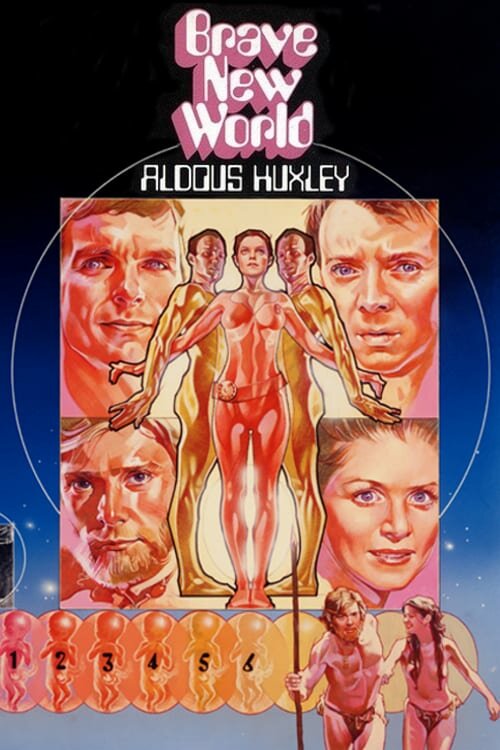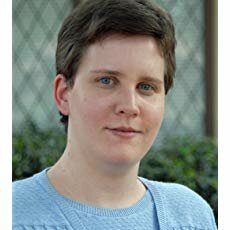The BBC is well known for its science fiction. Doctor Who is simply the most well-known. They have also been making science fiction movies based on classics like “1984” and “Brave New World”. The 1980 BBC version of “Brave New World” stands out for both its innovative style and its respect for the source material.
How the Movie Differs from the Book
The upbringing of Jon the Savage is paralleled to the upbringing of Bernard. Many things mentioned in passing or inferred in how the mass produced people are conditioned in upbringing are shown. The schools and various forms of conditions are presented. It is interesting and insightful.
The fine details of their society are explicitly shown, so that you’re able to better realize what such a shallow, mass-produced society creates. However, like any good dystopia, their justifications for such are also shown. For example, the alpha graduation society of stability monitors shows their worldview and what they’re proud of. No more diseases, no more poverty, no more burdens of giving birth like animals, and everyone are happy. Love is impossible but so is hate and grief.
Their leadership is aware of this, though most are kept ignorant. The contradictions are explicitly stated and justified in the movie. “Alphas are conditioned to believe without knowing and knowing without believing”. The alphas enjoy elite knowledge because they are elite, and they don’t care that they are conditioned to believe this. “We are conditioned to want only what we have and have only what we want and are therefore always happy.” The master controller says this much in the book, but the movie goes into greater detail and adds more, complementary detail.
“Recent implies past. Improvement implies progress. If the present is perfect, then there can’t be progress.” You aren’t allowed to imply that the current society is anything but perfect. They expend incredible effort maintaining the illusion knowing that it is necessary for their society to remain stable. This explains why they have so many political officers / social workers in addition to the regular consumption of drugs. “Why” is described as a dangerous, inappropriate word by the Controller early on, and its danger is proven when Jon asks it later. For example, why do workers take soma if they’re all happy? If you need the drug to be happy, then society isn’t as great as it seems.
You also get little details that flesh out the world such as “the Quakerites driven into the Yukon” versus the tribal society of “the Savages”. Linda’s story is far more fleshed out than the mention of the accident that left her on the reservation and the worn-up, desperate husk we see in the book. You hear her describe the World State as perfect. They supply anything you want from new clothes to drugs that don’t leave you ill. You see Jon’s difficult childhood as an outsider raised by a single mother, leading to his hunger for his father. The movie makes it clear that the central controller is curious about Bernard Marx’s upbringing, resulting in his decanting and challenging education. That would explain his interest in Jon the Savage later on, another curious human experiment. There is more depth to the relationship between Bernard and his boss.
Bernard’s attempt to create a deeper emotional relationship with Lenina is presented in the 1980 “Brave New World” movie, while Bernard’s boss is envious and contemptuous of him. This shows that eugenics, social engineering and drugging have not completely exorcised these emotional impulses, proving Jon is not unique in this regard.
Because we spend more time on the reservation, the corruption of Christianity by both the World State and the Savages is apparent. The syntho-religious programs are akin to televangelists, and the Ford temple has choirs akin to the Mormon Tabernacle Choir. Of course, the literal religious orgies are rather different.
It is amusing to see multiple characters stutter or completely unable to say the words mother or father. They know those words, though they are disgusting and horrified by it. The book describes them as being in the same category as “scatological”. Even the educated characters are ignorant of words like son, daughter and marriage. In one case, Jon saying “but she’s my mother!” results in threats of him being kicked out of the dispensary for bad language.
Jon is upset by the sight of slave Epsilon labor. No one else is. This suggests that he’s the only one with moral awareness. It also raises the question as to whether or not morality is based on absolute rules or the prevailing social rules. If morality is a matter of social rules and conditioning as determined by society at the time, then neither we nor Jon can condemn their collective choices. This doesn’t prevent each side from moralizing in the name of educating. We see the female assistant to the Controller confused that a few lectures doesn’t break either Jon’s attachment to his mother or reverse his sexual restraint.
The movie is much clearer on Lenina’s fate than the book “Brave New World”. Whether that’s a tragedy or not depends on the viewer.
Conclusion
The 1980 BBC version of “Brave New World” is one of the rare movies that both honors and exceeds the source material. It mirrors “The Giver” movie in that regard. This is in stark contrast to the 1998 “Brave New World” movie whose only redeeming quality was including Leonard Nimoy.



Comments
Leave a Reply